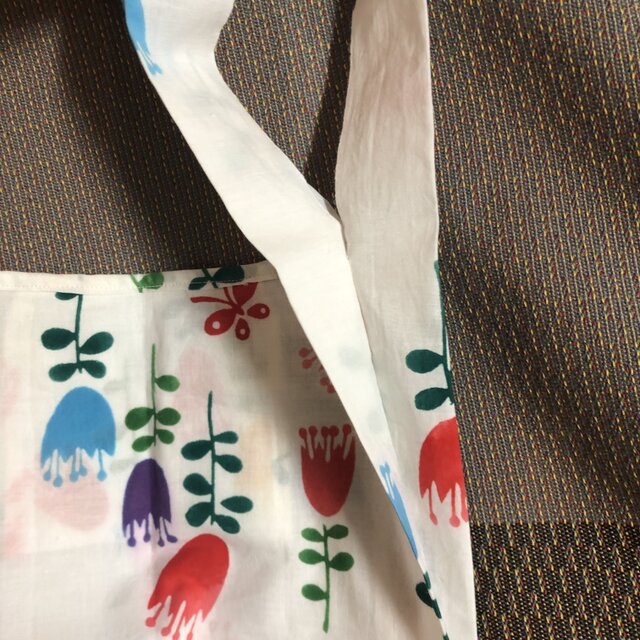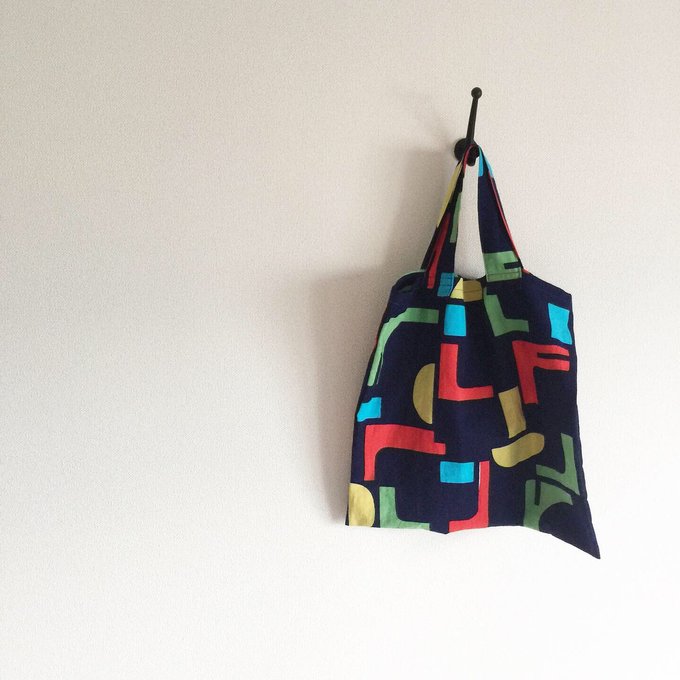昭和レトロ生地使用 エコバッグ
(税込) 送料込み
商品の説明
❁⃘*.゜こちら専用です❁⃘*.゜
✩.*˚人気のレトロポップなフラワー生地が再入荷致しました♪̊̈♪̆̈
少しだけ手に入ったので限定1個になります(人 •͈ᴗ•͈)✩.*˚
✿昭和当時のナイロン生地を使っています✿
子供用の傘の生地でとても可愛いですよ(*ˊ˘ˋ*)。♪:*°
size
横 マチあり36センチ(前回は平袋タイプ)
縦 41センチ
ハンドメイド品ですのでサイズは多少前後します。ご了承くださいませ。商品の情報
| カテゴリー | ハンドメイド > 素材/材料 > 生地/糸 |
|---|---|
| 商品の状態 | 新品、未使用 |

総合福袋 昭和レトロ生地 大きめエコバッグ バッグ(女性用) - www

ナチュラ 昭和レトロ生地使用 エコバッグ - 通販

期間限定の激安セール 昭和レトロ生地 エコバッグ ② setup

通常在庫品 昭和 レトロ 生地 エコバッグ 横長 | tatihome.com

供え 昭和レトロ生地 エコバッグ ① setup.chambermaster.com

ナチュラ 昭和レトロ生地使用 エコバッグ - 通販

ナチュラ 昭和レトロ生地使用 エコバッグ - 通販

総合福袋 昭和レトロ生地 大きめエコバッグ バッグ(女性用) - www

ナチュラ 昭和レトロ生地使用 エコバッグ - 通販

ナチュラ 昭和レトロ生地使用 エコバッグ - 通販

総合福袋 昭和レトロ生地 大きめエコバッグ バッグ(女性用) - www

昭和レトロ生地使用 エコバッグ 100%品質 promenu.sk

ナチュラ 昭和レトロ生地使用 エコバッグ - 通販

昭和レトロ生地使用 エコバッグ 100%品質 promenu.sk

昭和レトロ生地のエコバッグ fkip.unmul.ac.id

本日限定 昭和レトロ 生地 エコバッグ ファンシー hirota.com.br

期間限定特価】 - 昭和レトロ生地 大きめエコバッグ - 安い大阪店舗

昭和レトロ生地使用 エコバッグ 100%品質 promenu.sk

atelierアトリエハンドメイド レトロ生地使用♪エコバッグ マイバッグ

atelierアトリエハンドメイド レトロ生地使用♪エコバッグ マイバッグ

【人気商品】 昭和レトロ 生地 チロリアンテープ マザーズバッグハンドメイド エコバッグ ボストンバッグ

昭和レトロ生地使用 エコバッグ 100%品質 promenu.sk

昭和レトロ生地のエコバッグ fkip.unmul.ac.id

atelierアトリエハンドメイド レトロ生地使用♪エコバッグ マイバッグ

atelierアトリエハンドメイド レトロ生地使用♪エコバッグ マイバッグ

昭和レトロな子供の浴衣生地で作ったエコバッグ。 | iichi

atelierアトリエハンドメイド レトロ生地使用♪エコバッグ マイバッグ

昭和レトロな子供の浴衣生地で作ったエコバッグ。 | iichi

atelierアトリエハンドメイド レトロ生地使用♪エコバッグ マイバッグ

昭和レトロ*子供の浴衣生地で作ったエコバッグ*子犬 ベージュ系

昭和レトロ生地のエコバッグ fkip.unmul.ac.id

昭和レトロなゆかた生地のバッグ・エコバッグにもどうぞ

昭和レトロ生地のエコバッグ fkip.unmul.ac.id

昭和レトロ*子供の浴衣生地で作ったエコバッグ*子犬 ベージュ系

昭和レトロ生地のエコバッグ fkip.unmul.ac.id

名入れ 大容量 エコバッグ 買い物バッグ 保冷 バンド留 セミオーダー

ナチュラ 昭和レトロ生地使用 エコバッグ - 通販

復刻品♪昭和レトロな買い物籠 マルシェバッグ エコバッグ ハミング角
水縞 あの頃 サンリオキャラクターズ エコバッグ S グッズ 懐かしい

最大57%オフ! 昭和レトロ生地 エコバッグ ② arkay.com.ar





商品の情報
メルカリ安心への取り組み
お金は事務局に支払われ、評価後に振り込まれます
出品者
スピード発送
この出品者は平均24時間以内に発送しています














